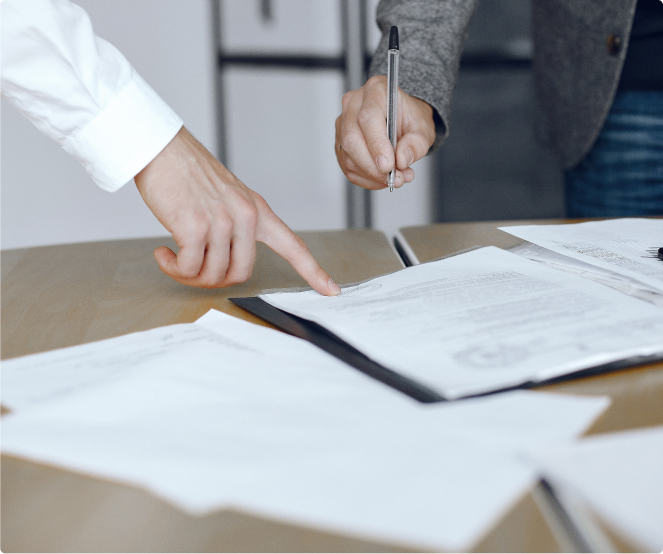





General Export Regulations
An Indonesian company can be classified either as a manufacturer exporter or as a non-manufacturer exporter. Each has different requirements if they want to export. In this section you can find a set of regulations on exports in general. As we know, when we do trade we must follow several principles agreed upon by the global community. Also, each country sets its own set of regulations that are expected to maximize trade benefits.
Declaration of Origin (DAB)
Declaration of Origin (DAB) or (Origin Declaration) is a statement of origin of goods made by a Registered Exporter (ER) or Certified Exporter (ES) for exported goods in accordance with the provisions of laws and regulations, applicable international agreements or agreements, to obtain preferential rates . Declaration of Origin (DAB) is a document proving that the goods to be exported have met the Rules of Origin of Indonesia and have the same legal force as the Certificate of Origin (SKA), so that they can be used as a substitute for SKA to obtain preferential tariffs in the export destination country.
More Details →Certificate of Origin
Certificate of Origin, or known as SKA in Indonesian, is a document which certifies that the exported goods are truly from a specified country. The electronic version of the certificate shall be mailed electronically to the country of export destination based on agreement. Normally, the certificate of origin is issued to accompany exported goods to a specified country, which has agreed to provide facilities including discount or zero import tariff. Such certificate assures that certain products are really originated, produced or manufactured in specified country.
More Details →Registered Exporters
This section provides information about application for becoming registered exporters and its requirements.
More Details →The enactment of e-SKA Form E
The application of e-SKA Form E electronically has come into effect on October 15, 2020, this means that the e-SKA Form E issued by the SKA Issuing Agency (IPSKA) will automatically be sent to the export destination country of China / China through electronic data exchange between ASEAN and China.
More Details →ASEAN Wide Self-Certification (AWSC)
This section offers information regarding Trade Ministerial Regulation (Permendag) No. 71/2020 on Rules of Origin and its implementation under the ASEAN Trade in Goods Agreement. The ministerial regulation which is effective since Sept. 20, 2020, replaces the previous regulation No. 24/2018.
More Details →Certificate of Origin Form ICO - International Coffee Organization
Certificate of Origin Form ICO - International Coffee Organization is a document accompanying the export of coffee for all export destination countries, which states that coffee products originate from a certain country. Companies that will export products in the form of coffee and in a certain amount are required to use a Certificate of Origin (SKA / COO) ICO Form.
More Details →Registered and Certified Exporters
This section provides information about the differences between Registered Exporters and Certified Exporters. Better understanding on the issue will make implementation easier.
More Details →Coffee Export
This section provides information about the documentation, procedure and regulation on the export of coffee. It provides information on existing regulations, on certificate of origin and on the list of coffee exporters.
More Details →Regulations Related to Certificate of Origin - SKA
This section provides information about the differences between Registered Exporters and Certified Exporters. Better understanding on the issue will make implementation easier.
More Details →Not an Exporter yet?
If you are not an exporter yet, there is nothing to worry. We have prepared a set of information on how to become one.
Requirements for all Indonesian Exporters
Before an Indonesian company can export its products, it must make sure it meets all Indonesian export requirements. The main steps for Indonesian companies to take have been listed here, but Indonesian exporters should also learn from other sources, including from the Trade Ministry website for a complete understanding of all export requirements.
It should be a legal
entity
It must have a NPWPc
(Taxpayer Identification
Number, TIN)
It must have a license
issued by the
government
Types of Indonesian Exporters
An Indonesian company can be classified either as a manufacturer exporter or as a non-manufacturer exporter. Each has different requirements.
In this section you can find a set of regulations on exports in general. As we know, when we do trade we must follow several principles agreed upon by the global community. Also, each country sets its own set of regulations that are expected to maximize trade benefits.
Canada Export Regulations
An Indonesian company can be classified either as a manufacturer exporter or as a non-manufacturer exporter. Each has different requirements if they want to export. In this section you can find a set of regulations on exports in general. As we know, when we do trade we must follow several principles agreed upon by the global community. Also, each country sets its own set of regulations that are expected to maximize trade benefits.
Contact us for the latest information
about customs regulations and export-import procedures.












